
views
Gohana: Hundreds of Dalit families across Haryana are not looking forward to state elections. Once subjected to violence and humiliation, these survivors of caste wars have little hope from the democratic exercise.
Check Haryana election results live here.
Interestingly, Dalits form 22 per cent of the total voters in Haryana, second only to 29 per cent Jats. Out of the 90 Assembly constituencies in the state, 17 are reserved for Scheduled Castes as per the Delimitation of Parliamentary and Assembly Constituencies Order, 2008. However, the state has not witnessed a strong Dalit leadership in the polls due on October 21.
News18 travelled to Sagga village in Karnal, Mirchpur in Hisar and Gohana in Sonipat district where houses belonging to Dalits were burnt down and people were killed in brutal attempts at the assertion of dominance by upper-caste men. None of the families had a political favourite. "We have no one representing and empowering us," was the collective reply to the question on their political preference.
Mirchpur: 10 Years Under Tarpaulin Sheets
Mani Singh, 72, is originally a resident of Mirchpur in Hisar. He owns a house in the village. However, he has been living almost 60 km away, on the outskirts of the town, in a make-shift shanty for the last ten years.
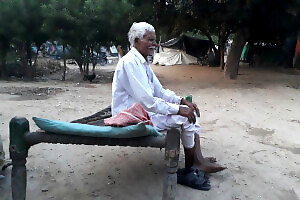
Singh will not vote this time. "I have a voter ID card but my polling booth will be near my village. I will not go there. Moreover, I find no party fighting for my rights. Who do I vote for?" he says.
Close to 200 families belonging to the Valmiki community have been surviving on daily wages and are not even privy to basic education and health facilities. The state government has promised to resettle them on a different patch of land but to no effect till date.
Valmiki is a sub-caste in Dalit community.
On April 21, 2010, 18 Dalit houses were attacked by the Jats in Mirchpur after an altercation over a barking dog. Following this, 254 Dalit families had to flee in search of safe shelter. After months of being homeless, most of them settled on a patch of land on the outskirts of Hisar, loaned to them by a social activist. They have been living there ever since. Only 40 families, which could not afford to lose their village livelihood, went back to Mirchpur.
For the families that went back, no day has been devoid of fear. Sixty-year-old Veerbhan runs a small grocery store exactly where most scuffles due to caste take place in the village. They call it the 'laxman rekha', with prosperous Jat settlements on one side and dilapidated Dalit households on the other.
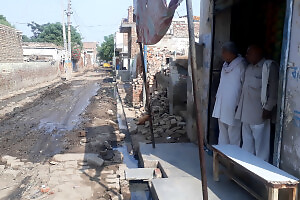
The 'rekha' is a slushy bylane, a breeding ground for mosquitoes, over-run by sewage. The Jats never come close to this murky area in the village, unless there is a brawl.
“There is a fight almost every month. They (upper-caste men) want us to leave as well. But where will we go? The government is yet to construct houses for us,” he says.
Last month, a Dalit boy was beaten up because he decided to start his own business. "The upper-caste men will not let us do anything. They beat him up because he started selling meat." says Veerbhan as he hands daily-use products to his customers, all of who belong to the same community, Valmiki.
Villagers informed that last year a Dalit teenage was thrashed and abused by Jat boys for winning village athletic races.
Cases of being cat-called as thieves and ridiculed in public for their caste is an everyday affair, say villagers.
BJP's incumbent MLA Captain Abhimanyu, villagers say, has never visited the area. The party has fielded him again from the assembly seat given his popularity among the upper-caste.
"We will leave as soon as our houses are given to us," says Veerbhan. However, roughly 60 km away in the make-shift settlement, hope has started to run out. "It's been 10 years, we will never get our houses," says Mani Singh.
Sagga: Where Dalit Marriages are Set in Fear
Roughly 18 kilometres from the district headquarters of Karnal, the assembly constituency of Chief Minister Manohar Lal Khattar, Sagga village has not seen a happy Dalit marriage ceremony since two years. The village is dominated by Rajputs. Dalit families live on the periphery.
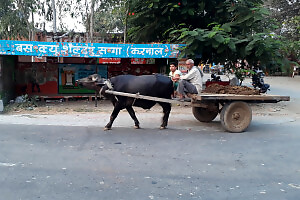
Dalit marriages here are set in fear. All the preparations are done in hush-hush. The ultimate motive is to get done with the rituals without getting into a fight.
On 3 March 2017, a stone-pelting incident took place between members of the two communities, after a Dalit groom was allegedly stopped from 'ghurchari' by some upper caste youths in the village. Due to the fear of being attacked again, Dalit families had protested in front of the mini-secretariat in Karnal for two days and later returned back after what is still termed as a 'sour compromise'.
'Ghurchari' is a custom where the groom gets on a mare to visit the village temple accompanied by his family members.
"Now we just have our marriages quietly in the village. Or have our pomp and show in some other village," said Rinku, 33, a Dalit resident of the village.
Somveer, the groom who was stopped from mounting a mare has been facing social exclusion. "None of the Rajputs talk to me now. I live in constant fear of being humiliated in the village. The incident has severely affected my confidence," he says.
Satish Balmiki from Bahujan Samaj Party, Tarlochan Singh from Congress and Manohar Lal Khattar from the BJP are contesting for constituency this year.
Here, too, the residents do not have much hope from elections. There are social-welfare groups and NGOs that keep visiting the village and families but there is no political power talking in their favour.
"There is currently no candidate in the state that we can look up to. We just need freedom from slavery, whoever comes to power," says Phool Singh, Somveer's father.
Gohana: Charred Memories of a Bloody Past
It has been 12 years since almost 50 Valmiki houses were burnt down and looted by upper-caste men in Sonipat district's Gohana. Rakesh Lara, a local Valmiki leader, was murdered.
In the years that passed, the charred houses were rebuilt. Compensation was provided. The guilty were punished.
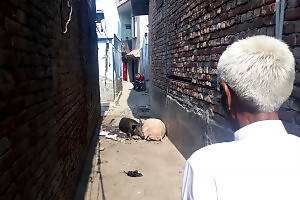
However, the rift caused then has its ripple effects even now.
The two communities live in two separate parts of the town and avoid confrontation. The Dalit families, as an accepted norm, do not take the route that the Jats do to exit or enter the town. Grocery stores and places to eat are all divided based on caste.
Rakesh Lara's brother, who now runs a small welfare group for the Valmiki community, has been saving every newspaper clipping about the incident. He has also been visiting the local Police Station, in vain, for the last 12 years to complain against those he thinks were involved in the murder but were not accused.
"The police was biased during the incident. They let the massacre happen because upper-caste men were involved. If we can't trust the forces, how do you expect us to live in peace? We have been in constant fear since my brother got killed," he says.
This time, Omprakash Goel from INLD, Dharambir from Bahujan Samaj Party, Jagbir Singh Malik from Congress and Tirath Singh Rana from the BJP are contesting from Gohana.
The Congress emerged in power in the tehsil after decades in 2005 when Dharam Pal Singh Malik defeated INLD’s Prem Singh by gaining 11,402 votes more. Bypolls were conducted in 2008 as Malik was disqualified from the state assembly for joining the HJC (BL). Dharam Pal Singh Malik bit the dust and the Congress retained its seat in Gohana as its candidate Jagbir Singh Malik won. In 2009 and 2014, Jagbir maintained his stronghold by defeating INLD candidates each year.
With polling due in a day, this section of the society has started to believe that their votes don't matter. "It does not matter who we vote for, no party thinks about our welfare. We are merely vote banks when elections arrive and forgotten when they are done with," he adds.

















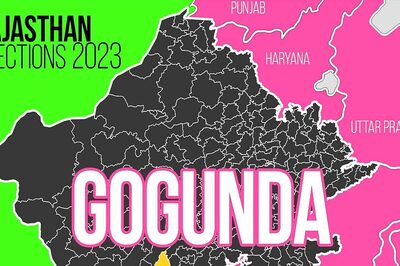

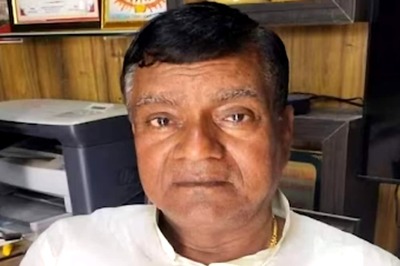
Comments
0 comment